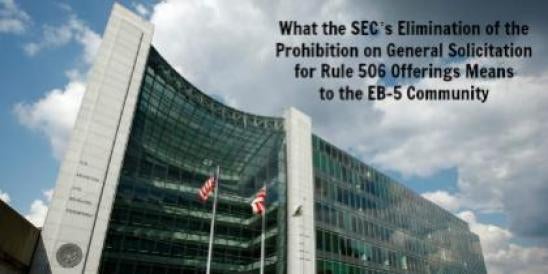SEC Speaks, the SEC’s annual conference in Washington, D.C., often provides valuable insight into developments at the agency, as well as pronouncements about policy evolution and enforcement priorities. At this year’s conference, “cooperation” emerged as one of the themes that the SEC has been prioritizing over the past year – and is committed to prioritizing in the future. Indeed, the co-directors of the SEC’s Division of Enforcement remarked that, “cooperation is as important now as it has ever been,” and that the “full range” of remedies are available to entities that provide meaningful cooperation to the SEC. Interestingly, the staff emphasized that the SEC is making a concerted effort to use its press releases and orders to highlight the importance, components, and benefits of cooperation – all in an effort to promote earlier, more meaningful, and more widespread cooperation.
As articulated by the SEC staff, and as set forth in SEC’s Enforcement Manual, the primary benchmarks of cooperation are: (1) self-policing(establishing compliance programs and internal controls to deter and detect misconduct); (2) self-reporting (thoroughly investigating misconduct, and then reporting that misconduct to the public and the appropriate regulatory agencies/organizations); and (3) remediation(imposing consequences on responsible individuals, correcting policies and procedures to ameliorate the likelihood of recurrence, and compensating those impacted by the misconduct). In addition, the staff emphasized that “good cooperation” requires entities to maintain a cooperative attitude throughout the course of the investigation, including providing complete document productions in a timely manner, and facilitating access to employees and other witnesses to fullest extent possible. The staff noted the importance of early dialogue about investigation issues and logistics to both demonstrate a willingness to cooperate, and to begin providing actual assistance. For example, the staff is open to early meetings with a party’s counsel, even if the company does not have perfect information yet, as even imperfect information about a situation can assist the staff is expediting the investigation and narrowing the relevant issues. Relatedly, if a subpoena is likely to have unintended consequences by bringing a lot of “noise” into the investigation, the staff looks favorably upon a party’s efforts to discuss those situations before a lot of time and effort is wasted managing an abundance of irrelevant documents.
The staff remains mindful of privilege implications that can arise when a company has performed an internal investigation about a subject that is subsequently subject to an enforcement investigation. Nevertheless, the staff noted that a company that finds a way to share the results of an internal investigation will likely receive vastly different credit than a company forces the staff to spend years replicating the work and findings of the previously completed internal investigation.
Some recent enforcement actions highlighted by the staff drive home the above-described principles.
-
In re Gladius Network, LLC – The SEC charged Gladius with conducting an unregistered initial coin offering (“ICO”), in violation of Section 5(a) of the Securities Act. Unlike two other recent unregistered ICO cases, Gladius was not assessed a penalty for their violations, but agreed to comprehensive undertakings. Not only was Gladius recognized for its cooperation in the SEC press release, the text of the SEC’s order specifically mentioned the importance of Gladius’s conduct: “In determining to accept the Offer, and not to impose a civil penalty, the Commission considered the remedial acts undertaken by Respondent detailed above, including its decision to self-report and its extensive cooperation with the staff’s subsequent investigation.”
-
SEC v. Keith Borge – The SEC recently charged the Controller (Mr. Borge) of the College of New Rochelle, alleging that he engaged in securities fraud under Section 10(b) by, among other things, creating false financial records, failing to file payroll tax submissions, and ignoring the collectability of pledged donations when assessing and reporting the college’s financial condition. Importantly, the college publically reported the problems upon discovery, conducted a full internal investigation, issued restated financial results, terminated the Controller, cooperated with the SEC investigation, and proactively reformed its internal controls. As a result, the SEC decided that it would not charge the college itself, citing its “extensive cooperation and remediation.”
-
SEC v. Salix Pharmaceuticals, LTD – The SEC alleged that Salix engaged of a practice of manipulating the perceived demand for its produces to induce unnecessary purchase by drug wholesalers. While these unnecessary purchases temporarily boosted sales of Salix’s products, it did so at the expense of future sales (once wholesalers realized that they had excess supply). Salix, through its CFO, made material omissions by failing to disclose this practice and its associated risks to its investors. Salix and its CFO were both charged with multiple securities law violations, including charges under the anti-fraud provisions of Section 10(b). However, on account of Salix’s “significant cooperation with the investigation,” which included self-reporting, an internal investigation, and remediation regarding the CFO, the SEC sought no civil penalty or disgorgement for Salix. On the other hand, the CFO was terminated from the company, agreed to a 5-year officer and director bar, was ordered disgorge over $558,000 in ill-gotten gains, and agreed to a civil penalty of nearly $495,000.
-
In re LendingClub Asset Management, LLC – The SEC charged LendingClub Asset Management (“LCA”) and two former officers (the President and the CFO) with a complicated scheme of directing a fund under its control to purchase loans that would more directly benefit themselves at the fund’s expense – a clear violation of their fiduciary duties to the fund. The sanctions imposed by the SEC were significant, including a $4,000,000 penalty for LCA, and $200,000 and $65,000 for its former President and CFO, respectively. But LCA’s parent company was not charged following the investigation on account of the “extraordinary cooperation,” self-reporting, “thorough remediation,” and reimbursement of nearly $1,000,000 to affected investors.
The SEC’s recent reaffirmation of the importance of cooperation has been significant, and, as the above-described cases demonstrate, the SEC seems as willing as ever to not only confer the benefits of cooperation on parties who truly provide the right type of cooperation, but also recognize the party’s cooperative efforts in a public manner. Both the direct and indirect benefits of cooperation remain a primary consideration whenever the SEC is investigating a matter.





 i
i


